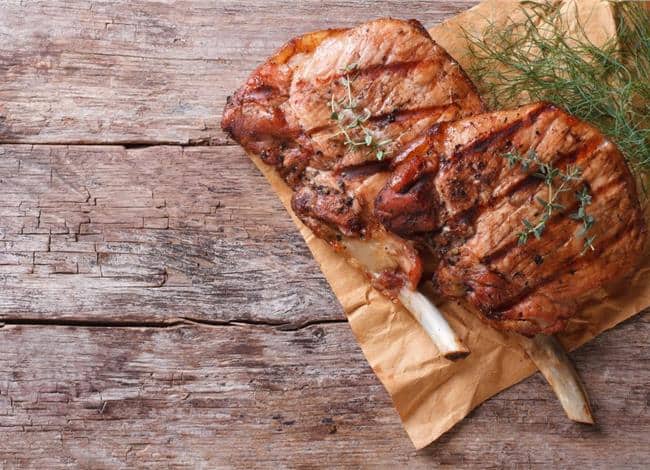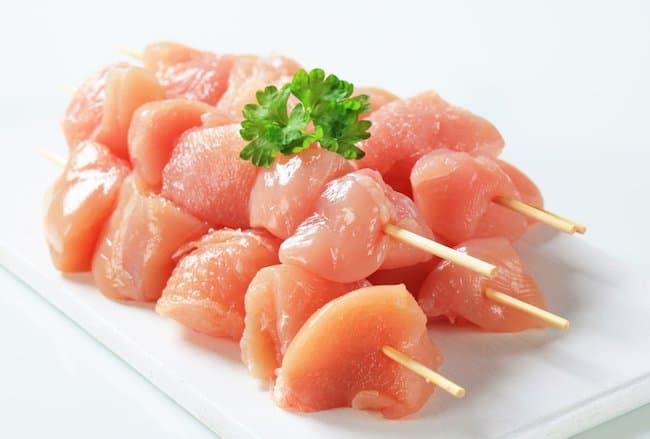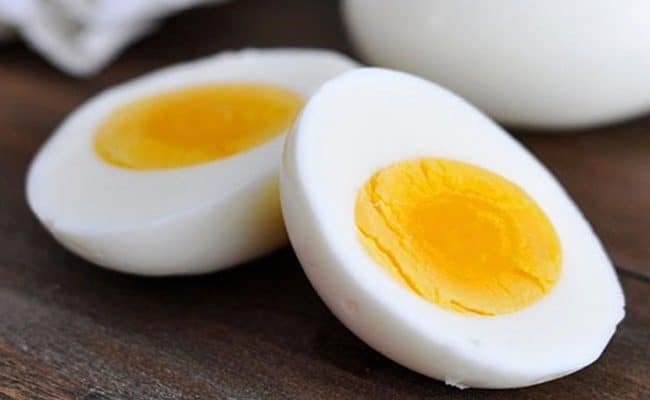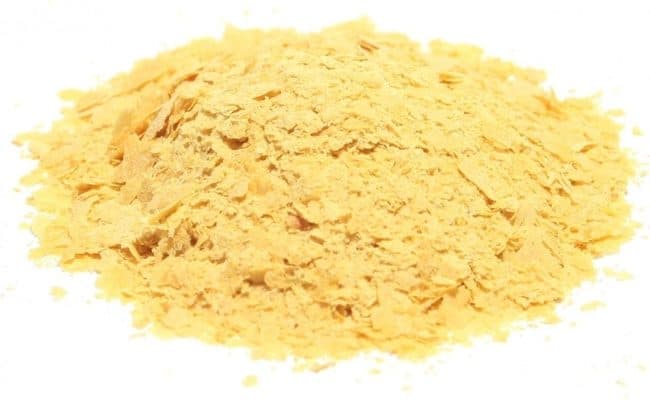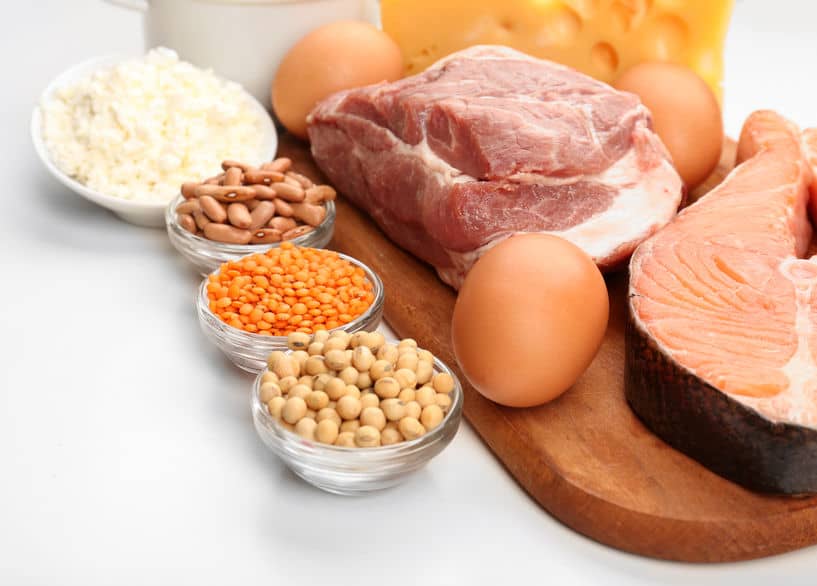
The body uses protein we get from food to make new cells, regulate fluid balance, make new hormones and provide satiety to a meal. The Institute of Medicine recommends getting 10-35% of daily calories from protein. In developed countries, getting enough protein is not a concern. Most Americans get more than enough protein from their diet.
The building blocks for protein are amino acids. There are nine essential amino acids we get only from food.
The body needs these amino acids to build proteins, but the body can’t make them.
Another eleven amino acids are considered non-essential because the body can make them.
From these twenty amino acids, the body forms thousands of proteins in the body that all have different functions.
The amino acids can be considered like letters that make words with different meanings.
We get these amino acid building blocks once proteins from food have been digested and absorbed.
Then the body puts together the amino acids to form new proteins for whatever the body needs.
If the body does not have an amino acid it needs, the protein can’t be made. It’s like if you don’t have the right letters from the alphabet, the word can’t be formed.
Difference between complete and incomplete proteins
Foods with protein can be classified as complete or incomplete protein foods based on how much and how many amino acids they provide.
Complete proteins provide all essential amino acids, but incomplete protein foods do not provide all essential amino acids equally.
Animal foods like meat, eggs and dairy are considered complete proteins.
They are a good source for all essential amino acids.
Plant foods like grains, nuts, seeds and legumes are considered incomplete protein because they may be lacking in one or more essential amino acid.
Is eating only incomplete proteins a concern?
Eating complete protein foods provides your body with enough amino acids to build all the proteins it needs.
What about only eating incomplete proteins?
If someone doesn’t eat animal foods can they get enough essential amino acids from their diet? Yes.
Vegans can get enough essential amino acids as long as they eat a varied diet.
Legumes, for example, have different limiting amino acids than grains and nuts.
Eating a variety of plant protein foods will provide enough of all amino acids to form the necessary proteins for the body.
Eating a variety of plant foods will still provide all the necessary amino acids.
Eating only incomplete proteins is only a concern if someone is a vegan (no animal foods) and does not eat a variety of foods.
For example, eating ONLY fruits and vegetables for an extended period of time could put you at risk for being deficient in several amino acids which could affect the way your body builds needed proteins.
If you are not sure if you are getting all your protein needs met from plant only sources, the Physicians Committee for Responsible Medicine (1) suggests the following to reach your protein requirements from plant foods:
- Aim for at least five servings of whole grains per day
- Aim for at least three servings of vegetables per day
- Aim for at least 2-3 servings of legumes per day
Plant foods considered complete proteins
In general, animal based foods are considered complete protein sources, and plant foods are considered incomplete protein sources.
However, there are some exceptions. Soy is considered a complete protein (2) even though it is a plant.
Soy is considered one of the highest protein sources that comes from plants.
Quinoa (3), which is a grain, is also considered to be more a complete protein instead of incomplete.
Most grains are low in the amino acid lysine, but quinoa has higher levels of this essential amino acid.
Both soy and quinoa resemble complete proteins instead of incomplete.
Therefore, they can make good protein choices for vegans and vegetarians.
Benefit of getting protein at every meal
Eating protein at every meal, whether animal or plant based, can offer many benefits.
Protein has the highest satiety out of the macronutrients meaning after you eat it, you feel full the longest.
This can be beneficial for weight regulation because feeling satisfied longer after eating can lower the need to eat again afterwards.
Eating protein spread throughout the day is recommended instead of loading up on protein at one meal.
Aim to get protein at breakfast, lunch and dinner.
Breakfast can be over looked for getting protein, but you can easily get protein at breakfast by eating some eggs, oatmeal with nuts and fruit, yogurt, toast with nut butter, etc.
Consider what else is coming along with your protein
We do not eat single nutrient foods.
We cannot just focus on the protein we are getting from a food, we must also look at the bigger picture of what else comes with the protein.
Plant sources of protein like legumes, whole grains and nuts also provide fiber, vitamins, minerals, antioxidants and heart healthy fats.
Animal based proteins like fish, lean poultry, diary and eggs can also provide the body with vitamins and minerals.
However, some animal proteins like red processed meat should be eaten with caution.
Replacing processed red meat with healthier protein options like seafood, poultry or legumes can lower risk for cardiovascular disease and in some studies even premature death (4).
Eating higher amounts of processed red meat can also increase risk for type 2 diabetes.
Switching out processed red meat for dairy, nuts or whole grains has been shown to help lower risk for type 2 diabetes.
Getting a variety of protein sources is recommended.
If you eat meat, eat mostly lean choices and limit consumption of red processed meat.
Substituting plant based proteins in place of processed red meat has been shown to have health benefits.
Eating plant based protein sources provides other nutrients such as fiber, vitamins, minerals and antioxidants.
You can get all your protein needs met from plant only sources as long as you eat a variety of foods.
